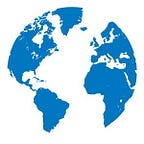Changing Landscapes:
Tarcila Rivera Zea Reflects on the Constant Fight for Indigenous Women’s Rights
By Navjot Singh
“Being a poor, indigenous woman who could not fully speak the language in a city hospital was a horrible experience,” says Tarcila, wearing a traditional Quechua style hat with colorful roses on the brim.
Tarcila Rivera Zea is a Quechua activist from Perú and the executive director of Chirapaq, whose mission is to defend and preserve the rights of Perúvian indigenous peoples and cultures. She spoke with Planned Parenthood Global’s Pilar Montalvo about her experiences in her community and the changes she’s seen from past generations till today.
Tarcila is from Ayacucho, an inland region in the southwestern part of the country. She and the other members of her community are a part of the Chanka people, and their way of life depends on the environment for sustenance. Colonialism has challenged that way of life and the Roman Catholic church in particular has great influence over various aspects of society.
“The church has a lot of power. It has the power over what knowledge and information is going into the community. It has the power to establish ‘sin’ and create an avenue of judgement,” Tarcila says. The church’s influence goes beyond the community and into the households, reinforcing gender stereotypes. Although in Quechua society the women are regarded as being the most fuerte, or strong, women have the extra burden of completing household chores in addition to field work. And by limiting access to family planning information, the church even manages to influence the womb. Tarcila estimates that women from her generation had around 13 to 14 children. Accessing clinics and hospitals was difficult, so they would use traditional plants to either help or terminate a pregnancy. And even when they managed to make it to the hospital in the city, “we would be discriminated against on several different factors: racism which was left by the colonialists, poverty, the inability to speak the language, and our gender.” According to Tarcila, hospitals were just not safe for indigenous women.
Yet modernity, she says, comes with its own set of struggles as well. “There was a different context in the previous generations. There was no money. But there were animals in our forests. There were fish in our rivers. We could live off the land. Now, this would be impossible. The animals are gone. Our rivers are polluted.”
And in the home there is now an economic burden on women which was not present before. “In my generation, when you had a child, you had the support of your whole community in raising the child…it is easy now for women to feel more alone,” she says, reflecting on the new costs of raising children and giving them a private education.
“In my generation, when you had a child, you had the support of your whole community in raising the child…”
However, she remarks that is not just Perú that needs to change but the practices within her community as well. They conduct a system of arranged marriage where girls as young as 13 years old are expected to marry 30-year-old men. “By forcing a young girl to marry, that girl doesn’t have a chance in deciding who or what she wants to be. She needs to finish her social development and then decide who she wants to be, who she wants to marry, and how many children she wants to have,” says Tarcila.
Her community’s cultural beliefs on gender norms also creates a prejudice against women who do not marry or do not have children because Quechua women are seen as connected to Pachamama, or Mother Earth. Even her own mother had pressured her to get married at the age of 25, she remembers. But, Tarcila says, these practices must change. “It is inhuman to force a girl to marry a 30-year-old man. It is inhuman to discriminate against a woman because she does not have children.”
“It is inhuman to force a girl to marry a 30-year-old man. It is inhuman to discriminate against a woman because she does not have children.”
Though it has been some twenty odd years since Tarcila first left Ayacucho to move to the city, her heart is still there. Her advocacy and efforts led to the creation of the Permanent Workshop of Andean and Amazonian Indigenous Women of the Americas and the Continental Link of Indigenous Women of the Americas. Her mission when she left was to fight and defend the rights of indigenous women, and that hasn’t changed .
“When you leave your community, you will learn certain things. You will encounter discrimination based on your skin color, not speaking the language, dressing a certain way, and the marginalization that comes with being a woman. You will suddenly find yourself subject to a man telling you to cook and clean and wash your clothes. In many cases, you are subject to aggression and violence. I hope the next generation can have a balance in being able to exercise their rights and have confidence in themselves.”
Navjot Singh completed his summer practicum in 2017 with Planned Parenthood Global as part of his candidacy for the Master of Public Health degree. He graduated from the Mailman School of Public Health at Columbia University in May 2018. Prior to moving to New York City, Navjot lived in Los Angeles where he worked on a variety of social justice initiatives, including health advocacy on behalf of marginalized communities.
Para leer el artículo en español, hacer clic aquí.
